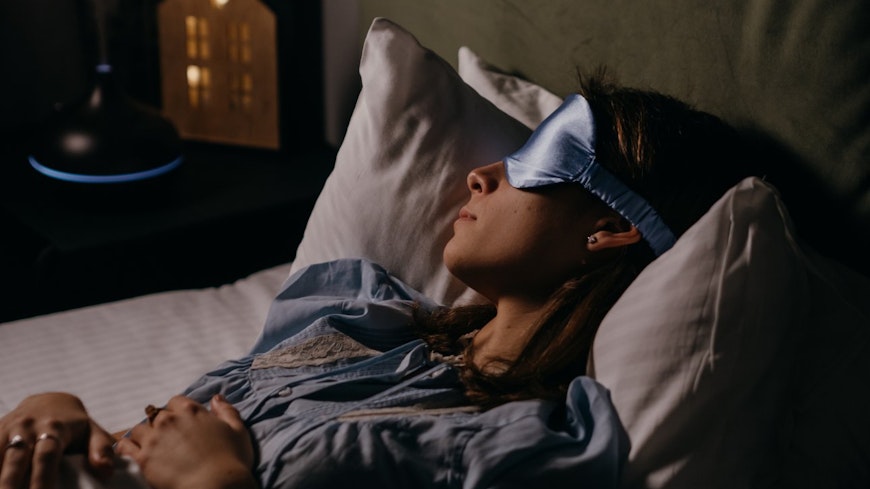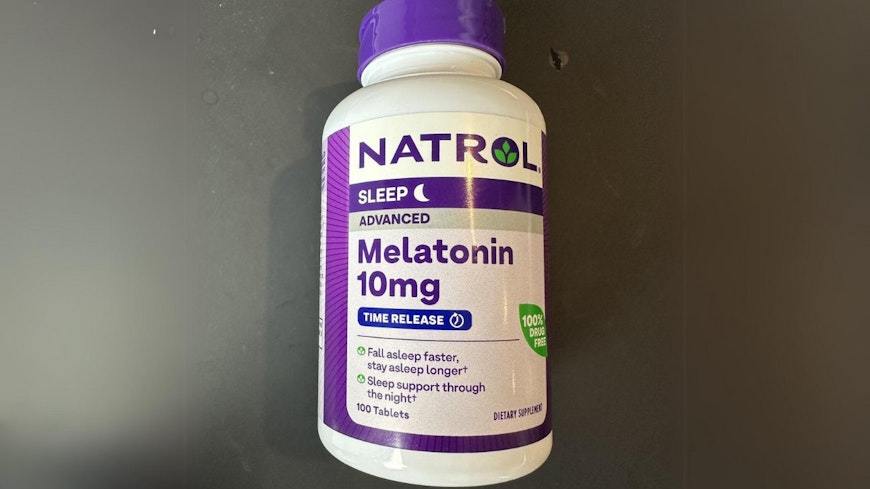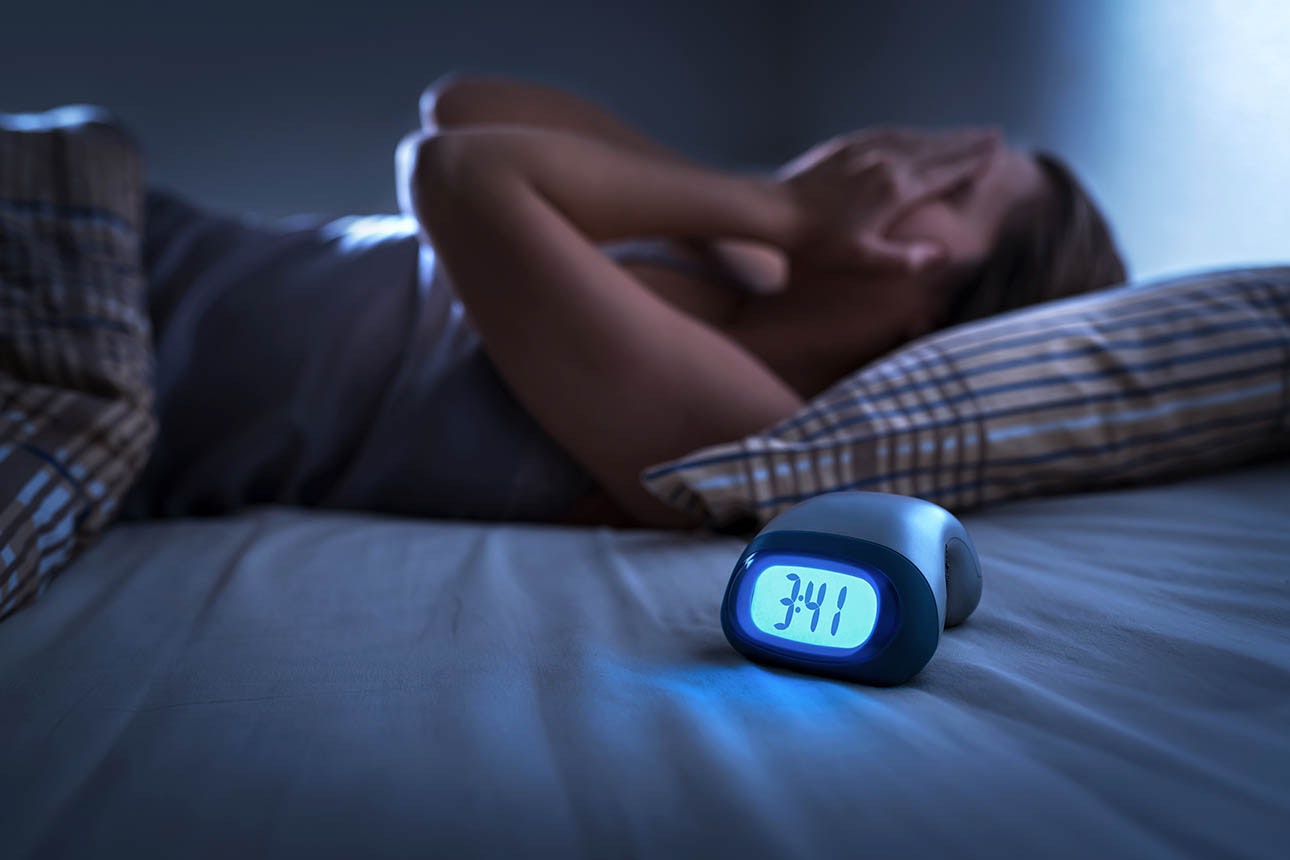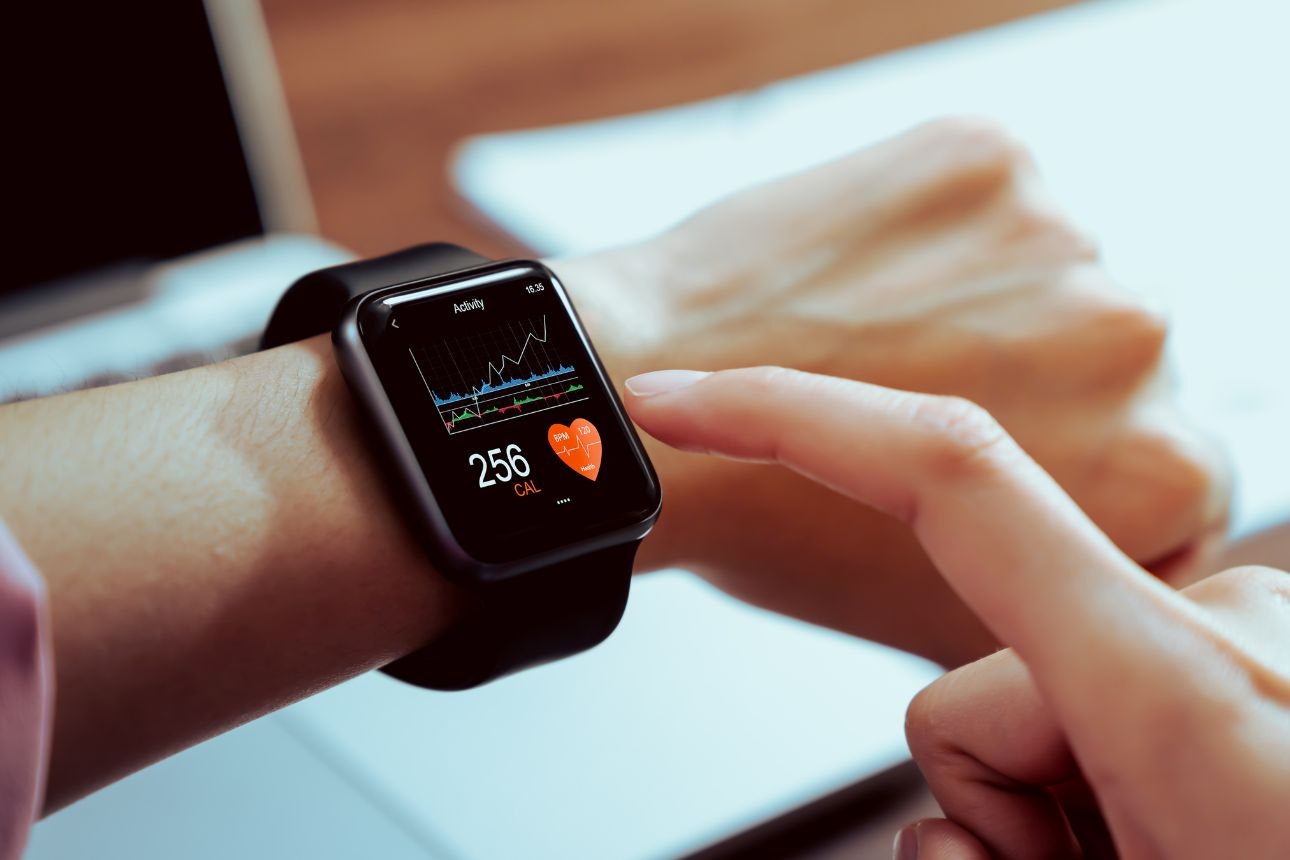
By Chris Schulz
Investigative Journalist | Kaipūrongo Whakatewhatewha
Melatonin is a hormone that can help with sleep. It's also a prescription-only medicine for most in New Zealand, but some have found a way around the rules. We look at how melatonin works, where you can get it and the problems with buying it from overseas.

Sarah Lin Turner sometimes struggles to get to sleep.
Over the years, she says she's tried almost every drug available in an effort to help her doze off.
"I've tried a lot of stuff for sleep," she says.
But there can be problems with many prescription and over-the-counter sleep aids.
"They're highly addictive,” says Turner. “There are side effects, like nightmares [and] being unable to wake up."
There's one product Turner has found that does seem to help her doze off: melatonin.
She’s experienced no side effects and says the natural product helps her to get to sleep quicker and stay asleep for longer.
"It definitely helped regulate ... my sleep schedule, which was all messed up," she says. "It helped bring my circadian rhythm back into line."
The problem? Unless you’re over 55, you’ll need a prescription to get it.
How does melatonin work?
Melatonin is a hormone that helps induce sleep and is produced in the brain’s pineal gland, usually after the onset of darkness.
It is also available in tablet form, made using bacteria and enzymes, or synthetically.
Catherine Crofts, a New Zealand-registered pharmacist and senior lecturer in pharmacology at the Auckland University of Technology, says melatonin isn't like other prescription sleeping pills.
"If you have someone who's absolutely wide awake and nervous, if you give them a sleeping pill like zopiclone or temazepam, it's going to cause drowsiness and that person ... will actually fall asleep," she says.
Melatonin won't do that, says Crofts. Instead, it’s a natural product that can be used to help reset the body clock.
"There are a whole lot of processes that come together to help cause sleep," she says. "Melatonin in the evening is one of those.”
If your biorhythms are out of sync, melatonin can be used to help bring them into alignment.
"People who have got jetlag, or shift workers, it works for those sorts of people because they're trying to reset a body clock."
Anyone suffering sleeping disorders may benefit from melatonin, Crofts says, including those with vision loss, and neurodiverse children and adolescents. “Melatonin supplements in these people help them maintain normal work/school patterns and social lives,” she says.
While there is limited evidence on effective doses, Crofts says there is no evidence that “more is better”. “Some of the best results for sleep have come from very small doses,” she says. While there isn’t a lot of research available, she says overdoses are considered unlikely.
How can you get melatonin in NZ?
In Aotearoa, melatonin is classified as a prescription-only medicine. To get it, you'll need to see your doctor and pay for a prescription, unless you’re over 55 and meet certain criteria. Those that do can get a 13-week supply of 2-milligram doses.
Those restrictions are in place because no one is willing to go through the necessary procedures to make a melatonin-based product more widely available, says Crofts.
“There is no incentive for a drug company to get their medicine registered,” she says. “It’s very expensive and something that a generic manufacturer can just jump on the bandwagon straightaway and pay a very small amount [to do].”
For Turner, she was too young to get it through her pharmacy, and the cost of a doctor’s visit along with the prescription was a barrier for her.
"It's not subsidised,” she says. “It costs $50–60 per month for a script."
So, Turner researched melatonin online and found it readily available in many other countries. Some allow it to be stocked on supermarket shelves next to other vitamins.
This raised questions for her.
"Why would it be so difficult and why would it cost so much?” she says.
"I don't know why there's a barrier to it."
Is there another way to source melatonin?
Instead of going to her doctor, Turner discovered she could import melatonin-based products in the doses she wanted through the American grocer iHerb.
"You can get 5-milligram tablets or 10-milligram tablets. It's easy, efficient, cheaper, in higher doses, and in any form: tablets, or gummies,” she says.
Consumer tried doing this and found iHerb would indeed deliver some melatonin products to Aotearoa. Amazon Australia will also deliver some melatonin products here too.
But Consumer found the most melatonin products available for shipping to Aotearoa through Amazon America.
So, we loaded a box of Natrol melatonin (100 tablets at 10-milligrams) into our online basket, paid NZ$42.58 and waited patiently for the courier to arrive.
About a week later, it did.

The problems with ordering melatonin from overseas
Crofts says I’m lucky the package got through.
“If Customs detects it at the airport, they may ask you to provide a prescription for it,” she says.
The same thing can happen for anyone who attempts to bring it home with them after travelling to an overseas country.
“They may confiscate it and ask you for a prescription.”
But Crofts says there can be other problems with using melatonin from overseas – you may not be getting a quality product.
In America, where my melatonin came from, melatonin is classified as a dietary supplement, meaning there may be fewer quality controls required to manufacture it. That may mean it’s not as good as that supplied by a New Zealand pharmacy, where melatonin’s manufacturing must adhere to strict Medsafe rules.
“That melatonin you’ve gotten from overseas, what does each tablet actually contain?” asks Crofts. “What is stated on the label? You don’t know … what it contains and what it doesn’t contain ... A supplement is not necessarily medicine-standard.”
Will the rules change?
Because of the costs involved to get a melatonin-based product registered here, Crofts says Aotearoa’s rules around melatonin are unlikely to change for the foreseeable future.
For Turner, who has needed the help of sleeping pills and supplements over the years, she’d like melatonin to be an easy, readily available and affordable option that she didn’t need to visit her doctor to get.
Instead, when she needs it again, she’ll attempt to purchase it overseas. And she’ll recommend any of her friends struggling to sleep to do the same.
Despite the quality control risks, and that her order could get confiscated at the border, she believes melatonin is still better than using addictive sleeping pills.
Those, she says, are often subsidised and can cost just the price of a $5 prescription. “It’s kind of crazy.”
Are there other ways to sleep better?
Changing your bedtime routines can improve your sleep. Crofts advises staying off screens, turning off your phone, and putting away your laptop. “Exposure to blue lights upsets how much melatonin your body is producing,” she says.
Try and eat your last meal earlier in the evening. “Eating the wrong thing at the wrong point in time can … affect your sleep cycle,” she says. So can late night snacks, or drinking caffeine.
For many, stress is a major cause of sleepless nights. Exercise, a warm bath, or meditation can help improve sleep patterns.
If you think you could benefit from sleep aids, including melatonin, consult your doctor first.
For more information, visit https://healthify.nz/medicines-a-z/m/melatonin/.

Why are natural health products so popular?
We asked consumers who take natural health products such as vitamins, what they take and why they take them.



